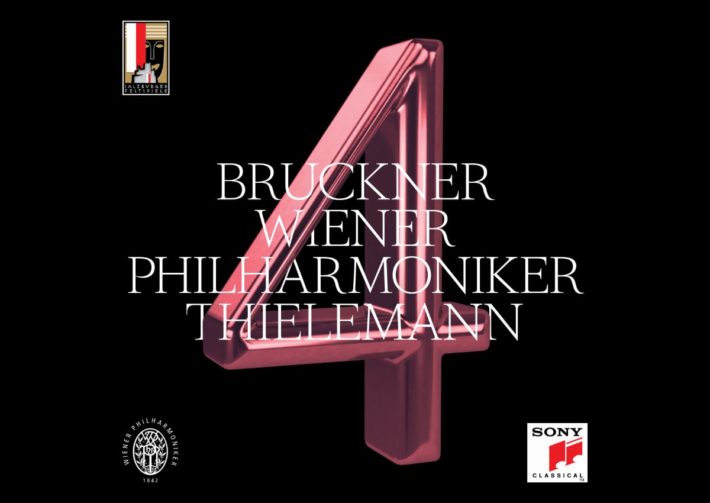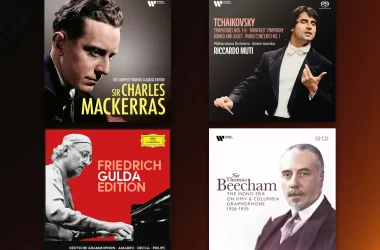The Vienna Bruckner cycle conducted by Christian Thielemann continues. I reviewed the first release, a recording of the eighth symphony made in the Musikverein, as beautifully played but emotionally disengaged. My colleague Leighton Jones was more positive about the next entry (Symphony No. 3), though he too sensed some “emotional restraint.” Surprisingly, this latest recording of Symphony No. 4 seems to operate at an altogether higher emotional temperature, making it the best entry in this developing series.
The Vienna Philharmonic’s playing is beyond reproach. This music is in their blood, and their sound, as captured here by Sony’s engineers, is voluptuously rich. Brass blaze at climaxes and the string tone is by turns refulgent and fulsome. Woodwinds have a more forward presence in the sound, making audible lots of detail that is all too often obscured in other recordings. While timpani have less physical impact than heard in the Berlin performances by Karajan and Wand, this appears to be exactly what Thielemann wants. (In the liner notes he describes his ideal Bruckner sound as “a roundness without any blurriness or mistiness, a clarity with a gentle edge to it.” And that is exactly what we hear.
Thielemann’s tempo for the first movement is unexpectedly mainstream, taking 19’23”, a bit faster than Karl Böhm’s 1970s famous Vienna recording (20’14”), as well as Haitink’s (20’39”) underrated 1980s performance with the same orchestra. As is his wont, Thielemann manages every detail of phrasing and rhythm, but it rarely sounds mannered or overly fussy. The performance unfolds with a natural grace and beguiling gentleness (sample the passage beginning at 3’00”). There is a lightness to the articulation and color that draws out the folksy element of Bruckner’s writing. Moreover, Thielemann has fully mastered the music’s sectional architecture – each part flows into the next with a seamlessness that has eluded this conductor in previous Bruckner recordings.
The Adagio is slow (16’12”) – by way of comparison, Karajan’s DG performance is almost two minutes faster. Yet the long pliable lines are beautifully sustained and shaped by the orchestra, and once again Thielemann elicits a wider variety of weight and color from his players, so that the listener is always drawn to a new timbre or texture. And in the Scherzo, I was much taken with how much woodwind writing Thielemann allows to cut through the often-dense orchestral fabric, creating an unexpected buoyancy and playfulness in music that all too often becomes a brass dominated battle.
Thielemann’s tempo for the final movement is again on the slow side (22’55”) and there are certainly moments where I wish for greater forward momentum (and less drastic grandiose tempo manipulation at climaxes (for instance 2’42”). But this is a subjective preference, and Thielemann’s interpretive concept is convincing. The final peroration is masterful, conductor and orchestra of one mind, the horns glowing with conviction and majesty.
Recorded in August 2020 at the Salzburg Festival’s Grosses Festspielhaus, the sound has greater presence and what is heard on the album of the eighth symphony. This allows for a greater delineation of orchestral detail and color which serves this interpretation well. For those keeping track, Thielemann’s earlier recording with the Staatskapelle Dresden uses Leopold Nowak’s edition, while this performance uses the one by Robert Haas. While this would not be my first choice, it is a highly accomplished reading that gave me a new way to see and hear this symphony. For those who find many Bruckner performances overly bombastic, the subtlety and refinement heard here may prove revelatory.

Bruckner Symphony No. 4, WAB 104
Vienna Philharmonic Orchestra
Christian Thielemann – Conductor
Sony Classical, CD 19439914112
Read more classical music reviews or visit The Classic Review Amazon store

















